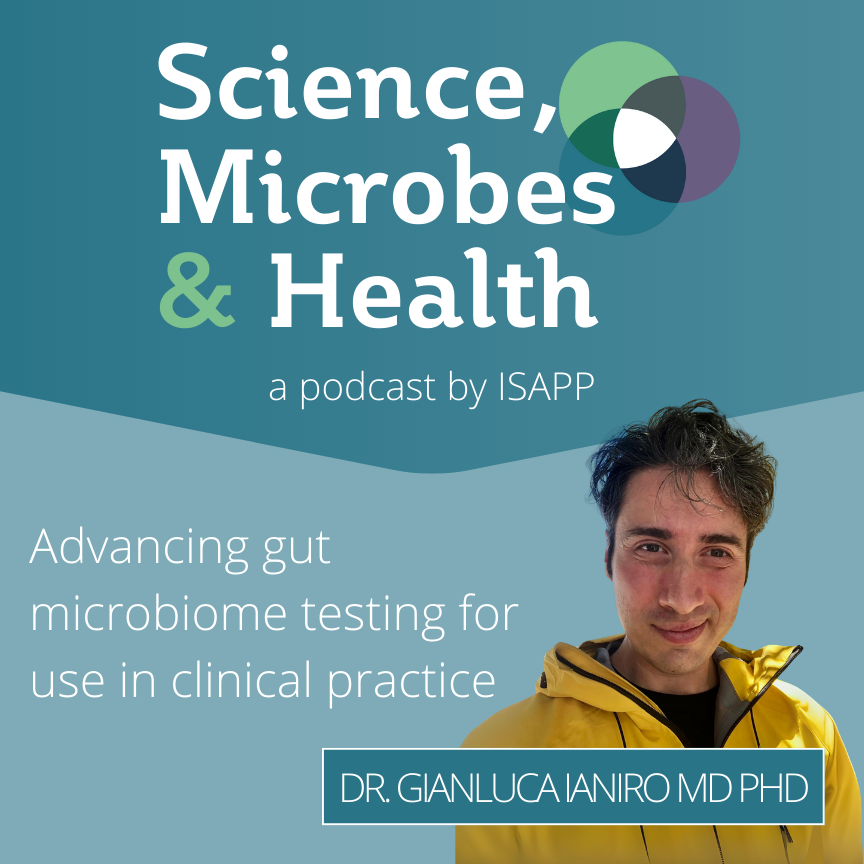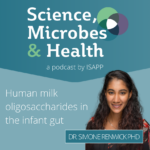Advancing gut microbiome testing for use in clinical practice, with Dr. Gianluca Ianiro MD PhD
Podcast: Play in new window | Download
Subscribe: Apple Podcasts | Spotify | RSS
This episode features Dr. Gianluca Ianiro MD PhD, a gastroenterologist from the Fondazione A. Gemelli IRCCS and Università Cattolica del Sacro Cuore in Rome (Italy), speaking about how to advance gut microbiome testing for use in medicine. His interest in the gut microbiome began with the clinical observation that fecal microbiota transplantation (FMT) was remarkably successful at curing recurrent C. difficile infection – and from there, he began a program of research on FMT. Current gut microbiome tests are widely variable and don’t provide any clinically relevant information, but some people do them out of curiosity. Over the years it’s become increasingly clear that gut microbiome testing must be standardized to move toward clinical utility. Dr. Ianiro co-authored a recent consensus paper on the challenges of gut microbiome testing and how to move toward standardization. He describes several initiatives that aim to standardize and validate gut microbiome testing, from sample collection to analysis. Dr. Ianiro says promising data exist for gut microbiome testing to predict colorectal cancer, to predict the response to some cancer treatments, and to diagnose inflammatory bowel disease. The field is moving toward some important factors that define a microbiome as “healthy”, but these need to be associated with a clear health outcome if they’re eventually to be used in clinical practice.
Episode abbreviations and links:
- Consensus paper on microbiome testing, co-authored by Dr. Ianiro: International consensus statement on microbiome testing in clinical practice
- “Healthy microbiome” consensus paper by Human Microbiome Action: Examining the healthy human microbiome concept
- Article by Liping Zhao on microbial guild-based analysis of the gut microbiome: Guild-based analysis for understanding gut microbiome in human health and diseases
- Paper from Zitvogel lab on gut microbiome to predict cancer treatment response: Gut microbiome influences efficacy of PD-1–based immunotherapy against epithelial tumors
- Two papers on gut microbiome testing for identifying colorectal cancer: Metagenomic analysis of colorectal cancer datasets identifies cross-cohort microbial diagnostic signatures and a link with choline degradation, Association of distinct microbial signatures with premalignant colorectal adenomas
- Paper on gut microbiome testing for identifying inflammatory bowel disease: Noninvasive, microbiome-based diagnosis of inflammatory bowel disease
About Dr. Gianluca Ianiro MD PhD:
Gianluca Ianiro is a gastroenterologist at the Digestive Disease Center of the Fondazione A. Gemelli IRCCS and adjunct professor in gastroenterology at the Università Cattolica del Sacro Cuore in Rome, Italy.
He has since gone on to establish himself as a key clinical and translational investigator focusing mainly in the field of intestinal microbiota, and has received several research grants in support of his innovative research. His current research is focused mainly on disentangling the rules of donor microbiome engraftment, on investigating microbiome diagnostics and therapeutics in noncommunicable disorders (including cancer), and on bringing microbiome into clinical practice.
Sign up for our monthly newsletter
Follow us on LinkedIn, Bluesky, X, Facebook,







